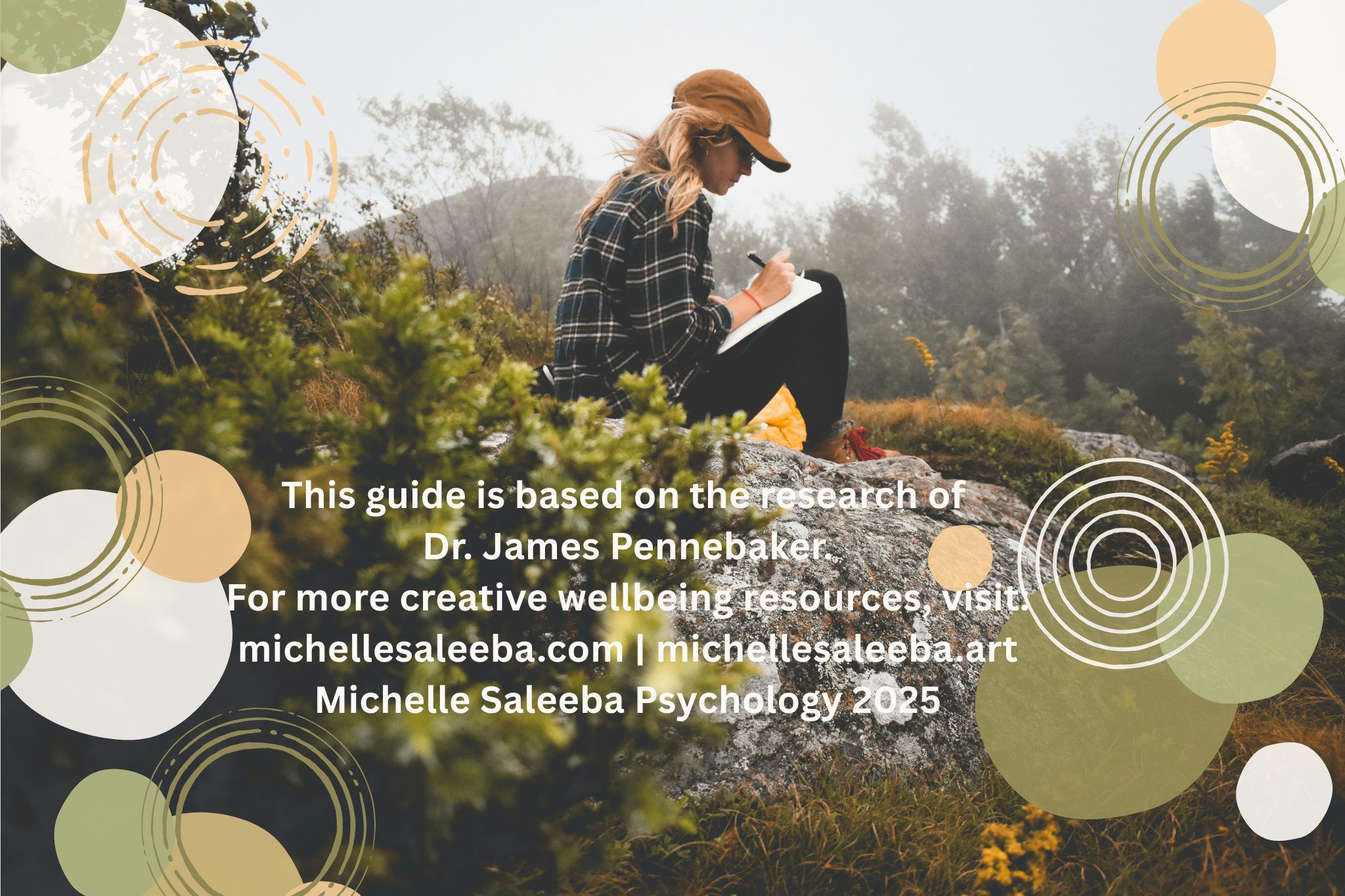Write.Process.Heal
How 15 Minutes of Writing Can Quiet the Nervous System: A Reflection on the Pennebaker Method
For nearly four decades, Dr. James Pennebaker has quietly transformed how we understand the link between language and healing. His research into expressive writing, a structured, time-limited approach to writing about emotionally significant experiences, has demonstrated consistent physiological and psychological benefits.
It’s simple and unassuming:
Write for 15 minutes a day, for four consecutive days, about a painful or unresolved experience. Don’t worry about grammar or structure. Just be honest.
And yet, the effects are measurable.
What the Research Shows
The panic center calms.
Writing about difficult emotions activates the prefrontal cortex and deactivates the amygdala, the brain’s alarm system. In doing so, it brings a sense of cognitive control and safety to emotional experiences that may otherwise feel overwhelming.The story gets “time-stamped.”
When traumatic or emotionally charged memories aren’t processed, the brain stores them as current threats. Expressive writing helps the hippocampus refile these experiences as past events, something that happened, not something still happening.Stress chemistry drops.
Within days of honest writing, participants show lowered cortisol levels, reduced blood pressure, and better immune function. The body responds as if the threat has been metabolised.Mental white noise fades.
Intrusive thoughts, rumination, and cognitive fog often reduce as a result of the process. It’s as if the brain, having been heard, releases its grip on the story. Many people report feeling clearer, calmer, or more focused.
Integrating the Method in Therapy Groups
I first introduced Pennebaker’s expressive writing method in a closed therapy group several years ago. What struck me was how often participants initially resisted it concerned it would “open up too much,” or unsure what to write. But once they began, many described the process as surprisingly relieving.
We’d begin with a psychoeducation segment, review the method, and invite participants to try it in their own time between sessions. I emphasised that the writing was for them, not for sharing. It wasn’t journaling in the conventional sense it wasn’t about recounting a day or venting feelings but about facing into something difficult with full honesty, privately.
A few key observations have stayed with me:
People often uncover emotional patterns or unexpected insights within four days.
Even when no narrative resolution is found, the simple act of structured truth-telling appears to shift something somatic.
The benefits compound when participants return to the process at different points in their lives.
I now recommend the method regularly to clients navigating grief, anxiety, identity transitions, or persistent rumination. It’s low-cost, accessible, and supported by a strong research base. And most importantly, it puts agency back in the hands of the writer.
How to Try It Yourself
This is the original Pennebaker protocol, with no embellishment:
1. Choose a topic
A painful memory, unresolved experience, or emotionally significant event.
2. Set a timer for 15 minutes.
Write without stopping. Don’t worry about grammar, spelling, or structure.
3. Be honest.
Describe the facts, your thoughts, and your feelings especially those you haven’t said aloud.
4. Repeat daily for four consecutive days.
Use the same topic or let it evolve. After four days, stop and observe what’s shifted.
Close the notebook. Let your brain do the processing work in the background. Sleep, walk, return to your life. The change often emerges gradually, through reduced distress and increased clarity.
TL;DR Summary
The Pennebaker expressive writing method involves 15 minutes of honest writing for 4 days.
It reduces cortisol, calms the amygdala, and helps reprocess painful memories.
Clinically, it can complement therapy and support emotional integration.
It's not about journaling or storytelling it's about truthful, uncensored processing.
Want more evidence-based tools for creative processing?
Explore journaling and expressive writing resources here including youtube links about the Pennebaker method.
Download my brief guide to Expressive Writing


